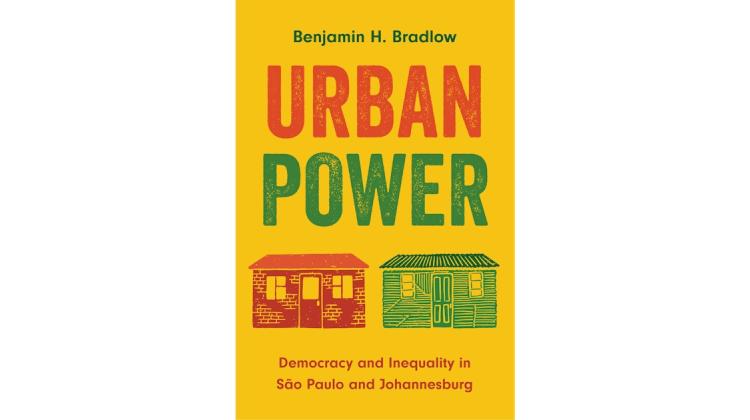Utilizing Urban Power to Realize More Equitable Cities

The world’s urban regions take up just 2.7% of its habitable surface area – yet concentrate the majority share of the global population lives in cities. The trend of greater concentration of our global population in cities is likely to continue, by 2050, it is estimated that 70% of the population will call a city their home. But individuals' living experiences in the cities vary wildly. One in seven urban residents are living in slums, often informal and marginalized communities that highlight the inequalities in cities. But in some cities, urban residents have formed networks and movements to develop housing and municipal services to reduce inequality. Why are some cities, relative to their peers, more effective at fostering these movements and reducing inequality?
In his award winning book, Urban Power: Democracy and Inequality in São Paulo and Johannesburg (Princeton Press 2024), Benjamin Bradlow utilizes his research experiences in São Paulo Brazil and Johannesburg in South Africa to develop and test an argument of urban inequality that centers on urban power, the coordination of formal and informal social relations that produce governance and management of public goods. Bradlow explores how urban power can be deployed to reinforce exclusion from public goods, thereby increasing inequity and how it can be harnessed as an agent of change to redistribute goods. Bradlow traces differences in access to three public goods - sanitation, mobility, and housing - to map how top-down governance and community movements interact in the context of local history and institutional priorities or missions
“The heart of this book is a paired comparison of two cities, but the larger arc of the book is an argument about the study of cities and urbanization globally,” says Bradlow. “We are just beginning to see the impacts of climate migration on cities, a trend most likely to intensify. It is critical in an era when more vulnerable individuals will be forced to move into cities that urban planners view those cities from the vantage point of the most excluded places, so we can begin to understand what it means to break down exclusion and realize healthier, more economically vibrant, and adaptable cities.”
Bradlow (MCP ‘13) is an Assistant Professor of Sociology and International Affairs at Princeton University. His research examines the connections between climate change, urbanization, technological change, and the political challenges for democracy that confront societies across the globe. Urban Power is the winner of the Best Book Award from the Latin American Studies Association's section on Subnational Politics and Society, and is a finalist for the Foreword INDIES in political and social sciences.


